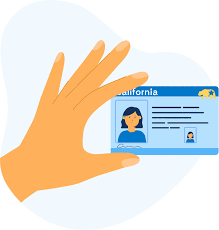
Table of Contents
If you’re considering a career in real estate, one of the first questions that might come to mind is: how much does it cost to get a real estate license? While the exact costs vary depending on your state and the requirements set forth by your local real estate commission, we’ve provided a comprehensive breakdown of all associated expenses to give you a clearer picture.
Understanding the Cost Components
Obtaining a real estate license involves several stages, each with its own set of fees. Below, we’ll explore the key cost components that aspiring real estate professionals need to budget for.
Pre-Licensing Education Costs
Before you can sit for the real estate licensing exam, most states require you to complete pre-licensing coursework. These courses are designed to provide you with the knowledge necessary to pass the exam and work effectively in the industry.
- Cost Range: $200–$1,000
- Delivery Options: Online courses, in-person classes, or hybrid options.
- Additional Materials: Some programs may charge extra for textbooks, study guides, or access to practice exams.
Pro Tip: Look for accredited schools or online platforms that offer bundled packages to save on costs.
Licensing Exam Fees
Once you’ve completed your education, you’ll need to register for the real estate licensing exam. This test typically consists of state-specific and national sections.
- Exam Registration Fee: $50–$100
- Exam Prep Courses: $50–$300 (optional but recommended)
Some states may allow retakes for failed sections, but retake fees usually apply. Preparing adequately can save you both time and money.
Background Check and Fingerprinting
Most states require real estate license applicants to undergo a background check and fingerprinting as part of the application process. This ensures the integrity and professionalism of the industry.
- Fingerprinting Fees: $30–$80
- Background Check: $25–$50
It’s important to schedule these services early, as processing times can vary.
Real Estate License Application Fee
After passing the exam, you must formally apply for your real estate license. Application fees are determined by the state.
- Application Fees: $50–$250
Be sure to check with your state’s real estate commission for specific guidelines and deadlines to avoid delays.
Post-Licensing Education
Many states require new agents to complete post-licensing education within their first year of licensure. This additional training ensures agents remain informed about laws, ethics, and best practices.
- Cost Range: $100–$500
Note: Failing to complete this requirement may result in license suspension or additional fees.
Errors and Omissions Insurance (E&O)
Errors and Omissions Insurance is essential for protecting real estate agents from potential legal claims. Some states or brokerages mandate this insurance as part of their licensing requirements.
- Annual Premium: $200–$600
This cost varies depending on the coverage amount, deductible, and the specific risks in your area.
Brokerage Fees and Start-Up Costs
Once licensed, most new agents join a real estate brokerage to begin their careers. Some brokerages charge start-up fees or monthly desk fees to cover office resources and support.
- Initial Start-Up Costs: $200–$1,000
- Ongoing Desk Fees: $50–$500/month
Be sure to ask potential brokerages about their fee structure and what’s included, such as marketing tools or access to a client database.
Continuing Education Costs
To maintain your real estate license, states require agents to complete continuing education (CE) courses during each renewal period. These courses help agents stay up-to-date with industry standards and laws.
- CE Course Fees: $50–$300 per renewal cycle
Licenses must typically be renewed every 1–4 years, depending on state regulations.
Total Estimated Costs
Here’s a quick summary of the approximate total costs to obtain a real estate license:
| Cost Component | Low Estimate | High Estimate |
| Pre-Licensing Education | $200 | $1,000 |
| Licensing Exam Fee | $50 | $100 |
| Background Check & Fingerprinting | $55 | $130 |
| License Application Fee | $50 | $250 |
| Post-Licensing Education | $100 | $500 |
| Errors and Omissions Insurance | $200 | $600 |
| Brokerage Start-Up Fees | $200 | $1,000 |
| Continuing Education (per cycle) | $50 | $300 |
| Total Estimated Costs | $905 | $3,880 |
Tips for Reducing Real Estate License Costs
- Shop Around for Pre-Licensing Courses: Compare prices and reviews of different providers to find the best value.
- Utilize Free Study Resources: Look for free or low-cost online practice tests to prepare for the exam.
- Negotiate with Brokerages: Some brokerages may cover part of your start-up costs or offer discounts on training programs.
- Bundle Post-Licensing with CE: Certain education providers offer package deals that cover both requirements.
Conclusion
Becoming a licensed real estate agent involves an investment in both time and money. However, with proper planning and budgeting, you can minimize expenses and maximize the return on your investment. By understanding the full scope of costs, you’ll be better prepared to launch a successful career in real estate.
